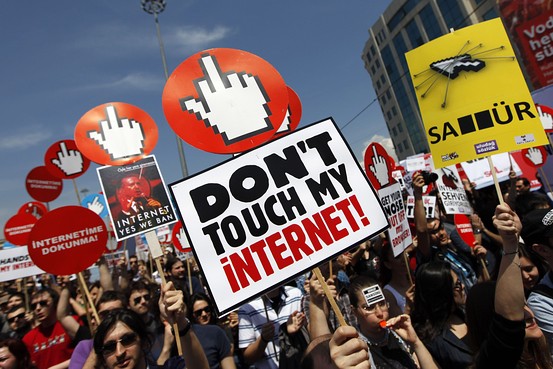Censorship and the Arab Spring Revolts
Article by Jeremy WeaverArab Spring is a term that began being used in March 2005 by numerous media commentators which suggested that a spin-off benefit to the invasion of Iraq would be the flowering of Western-friendly Middle East democracies.
The term had taken on a whole new meaning in 2011 as democratic uprisings independently arose and spread across the Arab world going viral over the internet and various other social media methods such as cell phones, face book and twitter.
Countries include Tunisia, Saudi Arabia, Syria, Egypt, Jordan, Bahrain and Libya. All of these countries are trying to block social media on the internet from leaking out about current war and other privacies that the governments feel they need to try and keep locked out to the rest of the world.
Since this a rather huge area to cover I am going to touch on Syria and how they are trying to block and censor their internet to its citizens!
Censorship and Internet in Syria
In Syria, president Bashar al-Assad has his own online posse, the �Syrian Electronic Army�. Members pick fights with the country�s online critics, spam the Facebook accounts of Hillary Clinton and Nicolas Sarkozy with pro-regime messages, and deface western websites. Its hacking victories are opportunistic; covering the website of Leamington Spa city council in pro-regime graffiti seems a long way from the streets of Damascus. But such random online actions disrupt the coherent image protesters would like to present, that of an isolated, unsophisticated regime about to fall.
Syria�s authorities are far from unsophisticated in facing off online protest. By infiltrating the social networking sites that built previous protests, and by subtly encouraging its own brand of online messaging and civil disobedience, the country has already avoided the inept and blatant stand-offs that dogged the Mubarak administration.
So it appears that Syria is trying to ban all Internet or at least control what they can in order to control the leakage of their inner turmoil from going viral over the Internet for the rest of the world to see. Syria's authorities have the upper hand when to comes to shutting down social network and online protesting sites. Although Syria has slow internet in comparison to other countries they still manage to get those blogs, sites and twitters shut down with quickness!
It also appears that iPhone and Android applications have issues being used in Syria, due to the US sanction being against providing services to the Syrian citizens. US computer analysts have been able to track Syrian government spying on ISPs of its citizens who have used and visit Facebook and were redirected to a new secure https service invisibly and sent to an internal Syrian server, witch attempted to intercept and decode conversations posted with in the real website service.
Syria claims it is not trying to trip a nationwide internet kill switch but feels what happens at home stays at home and would rather not share what is really going on in their country with the world via the internet.
I feel that the route they are taking is going to cause much more of a disturbance and may cause an up rise against the Syrian government. Every move the Syrian people are making on the internet is being watched and it is an invasion or privacy!
Syrian Website Banning and Censorship
About two years ago, the Syrian Government was pretty successful at limiting internet bandwidth within its country and depriving the citizens of internet access. We are talking about people who work hard to make very little, for example a normal monthly income per capita would be 100-175 bucks a month, internet access up until 2003 was $1 per minute, which is unbelievable! Also to make matters worse for these people, the government has made tools to track and block content that they did not want the people of Syria to view, if citizens were caught trying to bypass or tamper with these blockades they were arrested and convicted and slapped with a heavy fine and possibly prison time! A lot of these blockades included social network sites, certain countries websites and content, email service providers and much much more.
Now this makes using the Internet here in the states seem like a dream. We do have our limits on what we can and cannot do and there are consequences for those actions but nothing as regulated as Syria or for that matter any country in the Arab Spring circle.

Suppression of online freedoms may create as much dissent as it hides, as this protest in neighboring Turkey shows.
I do understand that there needs to be some sort of regulation on the Internet but spying and being sneaky about it will most defiantly cause the citizens to protest and riot like the photo below.
Conclusion
I am thankful for what we have here in the United States. A lot of people complain about some pretty petty things about the internet and the laws we have here that regulate our cyberspace, but nothing compares to what is happening elsewhere.
Seems like we have it pretty good on all accounts, maybe next time when your connection with Comcast drops or your email service is down or your having issues connecting to the internet, maybe you will take a second and think about Syria and the other countries in the Arab Spring Circle and take a step back and realize how good you have it here!
Sources and Additional Reading
The Arabic Network for Human Rights Information
SourceWatch: Arab Spring
The Nation: The Arab Spring
Asia News: Syria to Step Up Internet Censorship
